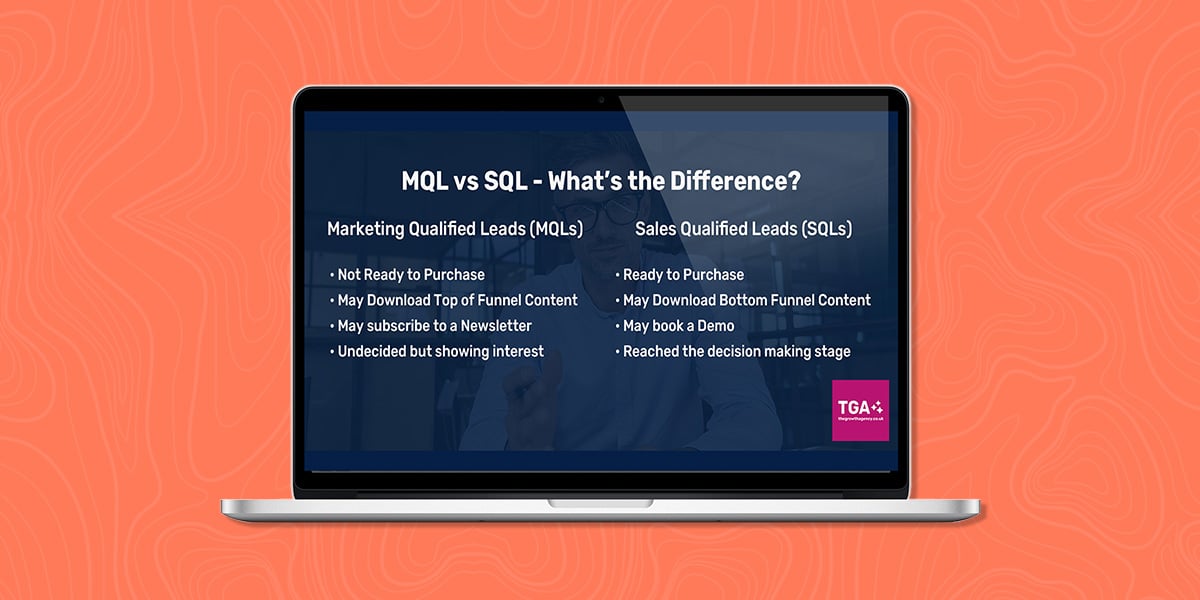MQL vs SQL: Understanding the Differences

In this article we'll discuss the differences between marketing qualified leads, often referred to as MQLs and sales qualified leads, often referred to as SQLs. We'll uncover the distinctions between them both and how they impact your organisation's marketing and sales efforts to avoid potential customers falling through the cracks.
Defining MQLs and their Role in Marketing
MQL, or Marketing Qualified Lead, is a term used in marketing to identify potential customers who have shown interest in a company's products or services. These leads are usually generated through various marketing activities such as website visits, email subscriptions, or social media engagement. The marketing department is responsible for nurturing MQLs and moving them through the marketing funnel.
The role of MQLs in marketing is to identify prospects who are likely to become customers. By collecting information about their interests and preferences, marketing teams can tailor their campaigns and messages to engage and convert these leads into paying customers.
Exploring SQLs and their Impact on Sales
SQL, or Sales Qualified Lead, is a term used in sales to identify prospects who have demonstrated a higher level of interest and engagement with a company's products or services. These leads have typically passed through the marketing funnel and are now in the hands of the sales department. SQLs are more likely to convert into customers and require personalised attention from the sales team.
The impact of SQLs on sales is significant. These leads have shown a strong intent to purchase and are considered valuable opportunities for the sales team. By focusing their efforts on SQLs, sales departments can prioritise their resources and increase the likelihood of closing deals.
The Key Differences Between MQLs and SQLs
While MQLs and SQLs are both important for the success of a company, there are key differences between them. MQLs are leads that have shown interest in the company's offerings but may not be ready to make a purchase yet. They require further nurturing and marketing efforts to move them through the funnel. On the other hand, SQLs have demonstrated a higher level of interest and are closer to making a purchasing decision.
Another difference is the department responsible for these leads. MQLs fall under the responsibility of the marketing department, while SQLs are handled by the sales department. This division ensures that each lead receives the appropriate attention and resources based on their stage in the buyer's journey.
Why is it important to Align Marketing and Sales
The alignment between marketing and sales is crucial for the success of an organisation. When marketing and sales teams work together and share their insights and data, they can better understand the customer journey and optimise their strategies to drive more conversions and revenue.
By aligning marketing and sales efforts, companies can ensure that MQLs are effectively nurtured and passed on to the sales team when they are ready to make a purchasing decision. This collaboration enables a seamless transition from marketing to sales, resulting in a more efficient and effective lead management process.
Optimising MQL and SQL Strategies for Success
To optimise MQL and SQL strategies for success, organisations can implement several best practices. Firstly, establishing clear criteria for MQLs and SQLs is essential. This ensures that both marketing and sales teams have a shared understanding of what constitutes a qualified lead.
Secondly, regular communication and collaboration between marketing and sales departments is crucial. By sharing feedback and insights, both teams can refine their strategies and improve lead conversion rates.
Lastly, leveraging marketing automation tools and CRM systems can streamline the lead management process. These technologies enable the tracking and analysis of lead behaviour, allowing marketing and sales teams to make data-driven decisions and optimise their strategies for better results.
By optimising MQL and SQL strategies, organisations can maximise the potential of their marketing and sales efforts, leading to increased revenue and business growth, as it is less likely and potential customers do not get lost in the 'gap' between marketing and sales departments.
Want to Learn more or Get In Touch?
For further information here's another article, written for the Hubspot blog, that contains additional points on this hot topic. If you'd like help streamlining your marketing and sales efforts, get in touch today.
Tags:
Lead Generation
06-Dec-2023 10:30:00

Comments